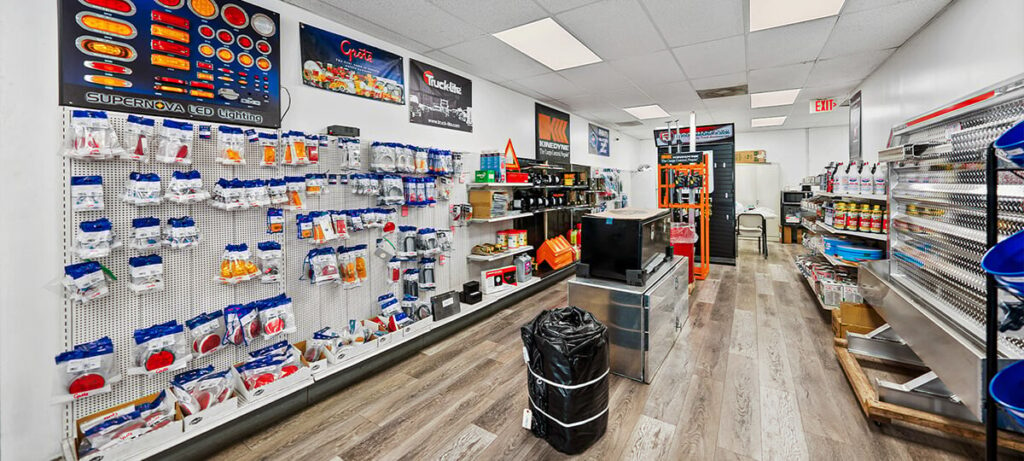Fleet managers expect more than technical skills from new hires stepping into their garages. Modern fleets are complex systems requiring a mix of expertise in technology, safety, and customer-focused operations. Technicians must be ready to adapt quickly.
Vehicles now rely on advanced diagnostics, emissions systems, and telematics, raising the bar for troubleshooting. Beyond tools and repairs, understanding compliance, documentation, and workflow efficiency is essential.
This article examines the key priorities that fleet managers seek in technicians to ensure their operations run smoothly.
Proficiency with Advanced Diagnostics Tools
Shops today run on more than wrenches and grease. Fleet managers expect new technicians to read data from engine control modules, troubleshoot sensors, and isolate electrical faults using scan tools and laptop-based platforms. Reading a code isn’t enough because you need to interpret it within the full vehicle context.
OEM-specific software and multiplex wiring systems now define daily workflows. That means new hires must be familiar with diagnostic suites like Cummins INSITE or Navistar’s NED. Managers also look for people who can spot intermittent issues others miss.
One way to build that edge is through Diesel-Heavy Truck Programs in Texas, where hands-on diagnostics modules mirror real shop environments. These programs also coach students on shop flow, customer reporting, and time management skills, which are just as crucial as the wrench work.
Knowledge of Emissions Control Systems
Fleet managers want technicians who understand how aftertreatment systems actually work, not just where they’re bolted on. Diesel Particulate Filters (DPFs), Selective Catalytic Reduction (SCR), and Exhaust Gas Recirculation (EGR) systems are no longer optional.
Each component plays a role in ensuring trucks comply with EPA standards. Miss one warning sign, and a regen issue can snowball into forced derates, roadside calls, or compliance violations. That costs time, money, and trust, especially for small fleets that can’t afford downtime.
Managers need people who can trace a nox sensor fault, inspect DEF quality, and explain how regen cycles affect fuel efficiency. It’s not just about replacing parts. You’re expected to connect the system’s behavior to upstream engine performance and downstream reporting requirements.
Familiarity with Telematics Software
Modern fleet operations depend on live data feeds, not clipboards. Managers expect technicians to pull diagnostic info from telematics platforms like Geotab, Samsara, or Verizon Connect and use it to identify real-time issues.
Alerts for overheating, harsh braking, or regen failures typically appear in the portal before the driver mentions anything. That means you need to understand how to filter the noise and act on what’s urgent. It’s now part of my daily rhythm.
When techs know how to read fleet dashboards and analyze trends, they become the first line of defense against costly breakdowns and downtime.
Strong Preventive Maintenance Skills
Today’s technicians need more than reactive skills. They must know how to spot early wear on components that may not trigger error codes. That means catching minor leaks, monitoring belt tension, checking fluid condition, and recognizing signs of battery degradation before they cause a no-start.
Shops with tight schedules rely on people who can think two steps ahead. Oil analysis, brake lining thickness, and tire pressure aren’t just checklist items but also early warnings.
Fleet managers value individuals who understand intervals, track PM compliance, and consistently follow OEM guidelines. Skipping steps isn’t just careless; it’s also expensive.
Adherence to Safety and Compliance Standards
Safety doesn’t end at PPE. It extends into how technicians secure loads, torque wheels, dispose of fluids, and document repairs. One loose bolt or unlabeled drum can trigger a violation or worse, a preventable accident.
Fleet managers watch for consistency. If you’re not logging DOT inspections correctly or miss a brake adjustment spec, it’s more than a shop mistake. It’s a compliance risk that could pull a truck out of service mid-route.
Rules shift rapidly, especially in areas such as emissions, brake systems, and hazardous materials handling. Staying current with FMCSA updates and OSHA standards matters as much as wrenching.
Effective Documentation and Reporting Habits
Paper trails matter as much as the repair itself. Fleet managers rely on accurate service logs to prove compliance, track costs, and schedule the next round of work. Incomplete notes leave gaps that slow everyone down.
Digital platforms have largely replaced handwritten records, and managers expect clean, precise entries. VINs, mileage, part numbers, and labor hours all feed into fleet management software. A missed detail skews data that drives business decisions.
Clear reporting also builds trust. Drivers see technicians as reliable when repair notes are easy to follow, and managers depend on that clarity for smooth operations.
Wrapping Up
Fleets evolve with every new truck, regulation, and tool that hits the floor. A technician’s influence reaches beyond the engine bay, shaping uptime, safety, and even company reputation.
Invest in your growth, stay curious, and push the limits of what you can do in the shop. The next shift always brings a new challenge worth solving.





